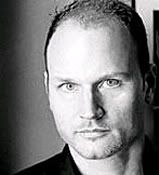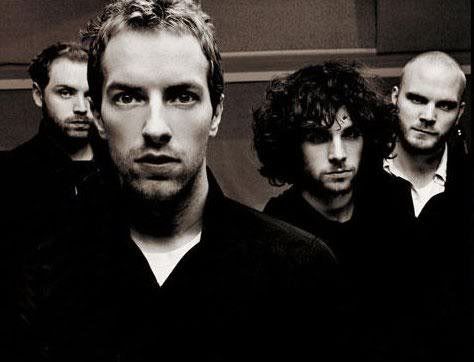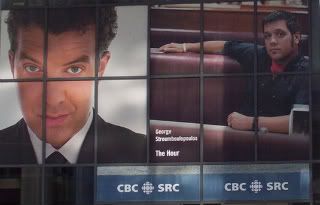Hurray! Summer is finally upon us... flowers planted, vacation plans are taking shape, countdown to the end of school on red alert for our many teacher friends. The
humidex has had a few test spins with many many more to come. The most disturbing sign of summer also greeted me on my cruise down the highway today - seeing people's raggedy, toe jammy feet up on the passenger's dash. UGH. Please. No one needs to see that people...
On the first Sunday of Summer - I can't think

of a better way to kick off things than to have a listen to the radio - Tune into the
Strombo Show tonight from 5-8PM EST on the
Corus Radio Network.
George will welcome
Ron Sexsmith live in studio for an acoustic performance and chat.
To say I am a fan of Ron is an understatement of epic proportions. Ron's innate musicality, brilliant and touching lyrics are inspired and in turn inspire other artists.
Bono. Paul McCartney. Elvis Costello.
Feist. Duet partner Chris Martin. The list is HUGE!
Humble about his talent and supportive of emerging artists such as Luke
Doucet and Justin Rutledge (Ron sings background vocals on Penny for the Band on Justin's new disc- Man Descending) Ron also supports friends by coming out to play small shows where a handshake and a thanks is his only reward.
Ok - maybe a handshake and a Guinness.
A musician friend of mine was blown away when Ron worked out a flourish for him on a tune he was working on with their mutual producer, Mitchell
Froom. I thought my friend would pass out when I informed him that not only had Ron seen his cover of "God Loves Everyone" on
Youtube - he thought it was excellent. As I recently expressed to a dear friend, Ron is generous with his Time and Treasure. Ron will headline a Gilda's Club benefit at the Drake Hotel in Toronto on Tuesday June 24
th. For those strolling through First Canadian Place @ 12:15 earlier that day - Ron will be there live.
I have seen him perform live numerous times in venues of all sizes and am eagerly awaiting his 11
th release - Exit Strategy of the Soul - which will drop on Canada Day. Also... my tickets for his Massey Hall May 3rd show - moved to October 23rd - taunt me daily.
Among Ron's legion of fans is the aforementioned Elvis Costello. Elvis' endorsement of Ron's self titled 1995 disc just may have saved his career. This debut disc included the gorgeous 'Secret Heart' - famously covered by
Feist.
At a Blue Rodeo and Friends' Show in 2007 - a US club tour featuring Blue Rodeo, Ron, Luke
Doucet, Justin Rutledge and Oh Susanna (also known as the best damn $20 I've ever spent) Ron remarked that he hoped
Feist's cover of Secret Heart would sell a ton so 'I can move to Jim
Cuddy's neighbourhood" Jim's reply? "Dream on Ron, Dream On"
Someday Ron.... someday.
Re-Run-A-Palooza Kicks off Monday on The Hour!Monday June 23rdCatherine O'Hara 
Amazingly talented, effervescent comedienne Catherine O'Hara counts as a favourite for me and I hope for you also! A charming and lovely interview.
From her start on
SCTV, to playing Kevin's mom in the Home Alone movies and her brilliant turns in Christoper Guest's films. Catherine is incredible.
As Best in
Show's Cookie
Guggelman Fleck? Come on - it just doesn't get better than that!
Everyone Loves Catherine.
Bryan Adams
In the category of least favourite interviews falls Bryan Adams. You may disagree...
Proof that not all Vegans possess a peaceful or even remotely pleasant demeanour. Bryan is cranky, George is unwilling to stoop or pander to his mood and has subsequently been unwilling to slam Bryan. It's interesting to see the dynamic. A publicist's nightmare.
Masochists at The Hour are airing this gem for the fourth or fifth time now.
Somebody might Love Bryan.
Tuesday June 24thCarlo Rota 
One of the busiest actors around, Carlo Rota is a favourite guest on The Hour. Whether on 24, Little Mosque on the Prairie or on an old fave - the Great Canadian Food Show - Carlo is more than engaging. For those who love the Classics - Rota recently filmed a version of Othello. Yes, a little lighthearted fare for you!
Jason PriestleyActor, pr
 oducer
oducer, documentary film maker and new dad. Jason Priestley has enjoyed a prolific career since his Beverly Hills 90210 days...
So ... as the team of The Hour takes a bit of a breather before launching into furious preparations for Season 5, they'll be revisiting many of their favourite episodes. Perhaps some of your favourites and LEAST favourites will make it on air over the next few weeks. Things can - as ever - turn on a dime so for the latest on what's airing when - visit
The Hour's Website.
Have a lovely summer - we'll keep posting fresh info as we get it.

 Souvenir of Canada is compilation of not one, but two books and a rather quirky documentary that chronicles Coupland's journey "to find out what makes Canadians, Canadians". The back-story on the project is rather interesting. In 2002 Coupland published the art/essay book Souvenir of Canada. In 2004 an exhibition of his work relating to this project, entitled Canada House opened at the Design Exchange in Toronto. The exhibit was billed as "art and design objects contemplating the notion of Canada" and coincided with the release of the second book, Souvenir of Canada 2. In the fall of that year, the exhibition hit the road and headed to The Canadian High Commission, Canada House in Trafalgar Square, London. The documentary (released in 2006 and now on dvd) is the story of how Coupland created his exhibit using those everyday objects that are familiar to us as Canadians, yet set us apart from those who are not. The documentary is simply brilliant and you will most certainly catch yourself yelling at your television as you see those objects that define us and our country. If you check out the books and/or dvd, you'll know what Douglas Coupland's idea of Canadiana is...tell us yours!
Souvenir of Canada is compilation of not one, but two books and a rather quirky documentary that chronicles Coupland's journey "to find out what makes Canadians, Canadians". The back-story on the project is rather interesting. In 2002 Coupland published the art/essay book Souvenir of Canada. In 2004 an exhibition of his work relating to this project, entitled Canada House opened at the Design Exchange in Toronto. The exhibit was billed as "art and design objects contemplating the notion of Canada" and coincided with the release of the second book, Souvenir of Canada 2. In the fall of that year, the exhibition hit the road and headed to The Canadian High Commission, Canada House in Trafalgar Square, London. The documentary (released in 2006 and now on dvd) is the story of how Coupland created his exhibit using those everyday objects that are familiar to us as Canadians, yet set us apart from those who are not. The documentary is simply brilliant and you will most certainly catch yourself yelling at your television as you see those objects that define us and our country. If you check out the books and/or dvd, you'll know what Douglas Coupland's idea of Canadiana is...tell us yours! 


.jpg)





























